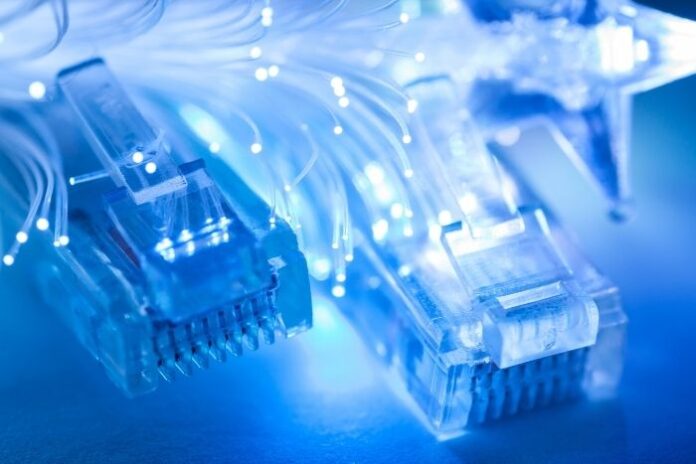When it comes to fibre-optic cables vs. copper cables, both have various advantages and disadvantages. Depending on what requirements you have for your cabling media, one may satisfy your needs better than the other. Continue reading to find out which to choose.
Key Takeaways
- Fiber optic cables offer faster data transmission, higher bandwidth, and are immune to electromagnetic interference.
- Copper cables handle more electrical power, are highly conductive, and are ideal for specific electrical projects.
- Opting for fiber optic cables minimizes fire and electrical hazards, while copper cables pose these risks and can corrode.
- Consider your needs: fiber optics excel in efficiency for larger spaces, whereas copper may be suitable for smaller, electrical tasks.
- Ultimately, fiber optic cables are generally a more reliable and lasting solution compared to copper cables.
Pros and Cons of Fiber Optic Cables
Fiber optic cables are network cables that contain strands of glass fibers designed for long-distance, high-performance data. They’re used worldwide for internet, television, telephone systems, and even automotive technology because they’re so reliable. While they serve a very different purpose than something like a DisplayPort (DP) cable, the advantages of installing fiber optic cables generally outweigh the few drawbacks.
Pros
- Faster data transmission compared to traditional electrical cables
- Supports high bandwidth levels
- Secure and safe
- Immune to electromagnetic interference (EMI)
- Allows greater capacity for data transmission
- Smaller and lighter
- Less susceptible to environmental factors like oxygen exposure
- Seamless connectivity
Cons
- Can be expensive to install
- More fragile than other electrical wires
- Susceptible to damage at high power use (fiber fuse)
While fiber optic cables are generally reliable, it’s still important to routinely inspect the lines to ensure the wires are not compromised or unfit for successful use.
Pros and Cons of Copper Cables
Copper cables are a group of two or more copper wires bundled within a jacket that use electricity to transmit information. While copper wires used to be more common before fiber optic cables grew in popularity, many professionals now question the overall integrity of copper cables and their efficiency. Despite this, there are still many pros to consider regarding copper cables and their use, especially in specific applications, such as RCA cables, which remain popular for transmitting analogue audio and video signals.
Pros
- Can handle a more comprehensive electrical power load
- One of the most conductive metals, making it reliable
- High resistance to heat, so there is a smaller chance of overload
- Easily manipulated material
- Can withstand high tensile stress
Cons
- Produces EMI
- Can pose a fire and shock hazard
- Danger of corrosion
- More expensive to install
- Low transmission ranges
Which Is Better?
Before deciding whether you should choose fiber optic cables or copper cables, consider the pros and cons. If you prioritize higher bandwidth and data transmission capabilities, fiber optic cables might be your best option. From a safety standpoint, because fiber optic cables are made of glass fibers, they pose no risk of fire or electrical hazards that may put your life at risk. Fiber optic cables are lighter and more efficient.
Copper cables, while able to handle a greater load of electrical power and are highly conductive, making them ideal for electrical projects, have many cons that are difficult to overlook. Additionally, Copper cables pose fire and shock risks and inevitable corrosion, making them expensive to replace. Copper cables limit transmission range, making them inconvenient for larger spaces. Overall, fiber optic cables are a more efficient and lasting option for your cable media solutions. When deciding between fiber optic and copper cables, understanding the difference between single conductor and multi conductor cable can significantly impact your network’s performance and scalability.











